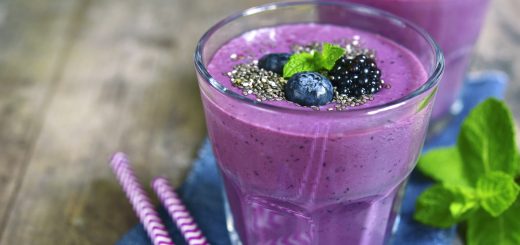New Year, New You: Part 6 | Exercise & Sleep Does the Body Good

Geri Wohl, CNC
Better Eating Coach
Written By: Geri Wohl, CNC
www.bettereatingcoach.com
You’ve worked on cleaning up your diet by eating more unprocessed foods and drinking more water. What else can you do to encourage further weight loss? Exercise and sleep are two important lifestyle factors that can directly affect one’s weight. Keep in mind that every 3500 calories is equal to one pound. If you cut calories and exercise, you will be able to achieve your weight loss goals sooner while improving your fitness level and overall health.
Any type of physical activity will help with weight loss, as the body will need to use calories instead of storing them as fat. However, the research studies show that exercise with calorie reduction results in more overall calories lost. Exercise benefits us by improving our metabolic rate meaning that the body burns energy (calories) more efficiently. You may even notice that regular exercise reduces your cravings. In addition, regular physical activity supports the heart, improves insulin sensitivity (to prevent diabetes) and strengthens the bones. To lose one pound/week, you need to burn an extra 500 calories/day by cutting calories, exercising or a combination. To achieve a 500-calorie daily reduction, a 150-pound male would need to run 45 minutes at a 10minutes/mile pace. In addition, eating foods that help with energy and recovery are important. For a recap on exercise nutrition, see my article, “Exercise Nutrition.”
Exercise comes in many different forms: aerobics (cardio), strength and interval training and stretching. Keep in mind that if you are new to exercise, start slowly. If you may have a medical condition, consult your doctor before starting any new exercise routine. When deciding on the form of exercise, choose something that you enjoy; otherwise you will be unlikely to continue it for the long term. For maximum benefit, work out for at least 45 minutes. New studies show that the time may be broken down into shorter segments if needed. Here is a breakdown of some types of exercise programs and their benefits.
- Aerobics: Biking, swimming, kickboxing and running are all forms that require extra oxygen. As you work hard, your muscles need added oxygen, provide by the heart and lungs. This is one of the best ways to lose weight because you burn lots of calories.
- Strength training: Lifting weight helps shape and build muscle, which supports your bones. With increased muscle mass, you can more efficiently burn calories resulting in a higher metabolic rate even while at rest. In addition, strength training burns fat and tones the body. For our women readers, don’t worry about muscles becoming too big and bulky. Our body composition results in toned, not beefy muscles.
- Interval training: These workouts alternate between high intensity spurts followed by periods of low intensity. This workout can be done with any type of aerobic activity such as running, biking, swimming or calisthenics. Because the body has to constantly adjust its activity level and speed, you will work harder and burn more calories. Another added benefit is increased metabolism.
- Stretching: While stretching doesn’t directly affect your weight, it improves flexibility and range of motion of the muscles and joints especially before heavy-duty workouts, resulting in fewer injuries. And no one wants to be sidelined from injury! In addition, it can improve blood circulation and help with stress relief.
A combination of strength and aerobic exercise is recommended for optimal weight loss. Add in healthy eating and you have a great recipe for inches and pounds lost. For further information on fitness, see my article, “Fall Fitness Tips II.”
Finally, sleep is vital to weight loss and is often overlooked. Without adequate sleep, our metabolism will not function optimally. It is best to get between 7 ½-8 hours of sleep/night. Having a regular sleep schedule aids in weight loss. A study from the American Journal of Health reported that those who kept a constant sleep routine had a lower percentage of body fat than those who slept at irregular times. In addition, exercise improves sleep quality.
So how does this restful activity have such a large impact? It is due to two very important hormones—leptin and ghrelin. When we get inadequate sleep, our ghrelin levels raise signaling the stomach that we are hungry and need to eat. At the same time, leptin, responsible for suppressing hunger, decreases resulting in over-eating. When we get enough sleep, our appetites are curbed and our metabolism improves. At the same time, our bodies get to rest and recover from the day’s activities.
To get enough sleep, consider these tips to improve your shut-eye.
- Avoid caffeine after 2 pm especially if you are sensitive to it.
- Exercise is great but not right before going to bed.
- Avoid heavy, rich meals before bedtime.
- Relax before hitting the sack. Try taking a bath, drinking hot tea, listening to calming music or reading a book.
- Create a sleep-inducing environment. Stop using screens for 30 minutes-1 hour before sleep. Get your bedroom as dark as possible to signal the body that is time for rest.
Employ the various eating and lifestyle improvements in this weight loss series to achieve your goals and feel better that you have taken steps in the right direction. If you need further assistance, contact me on my website at www.bettereatingcoach.com.
© Geri Wohl, CNC










